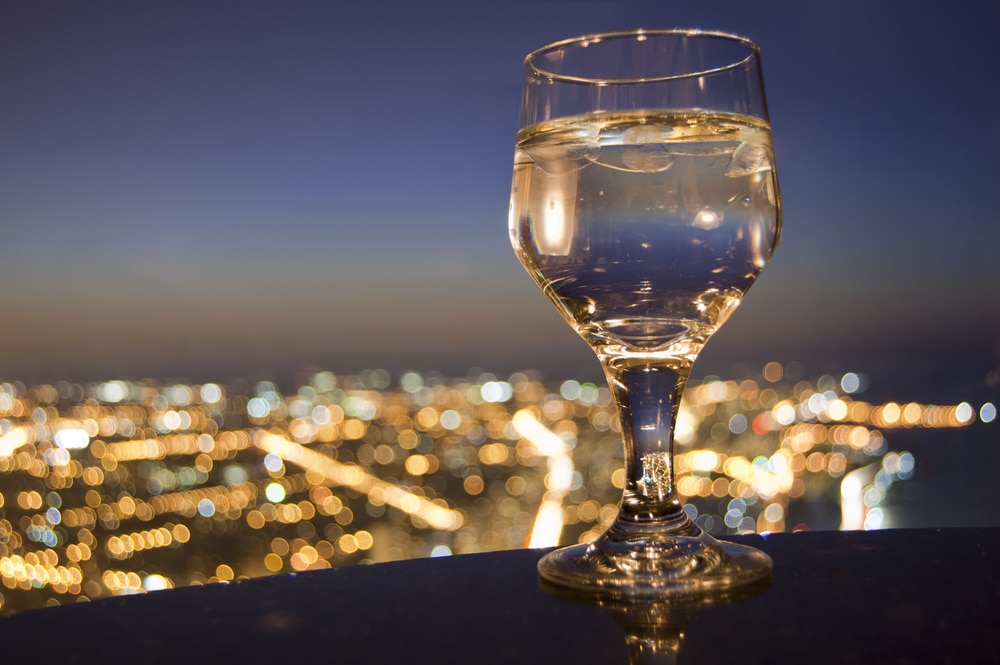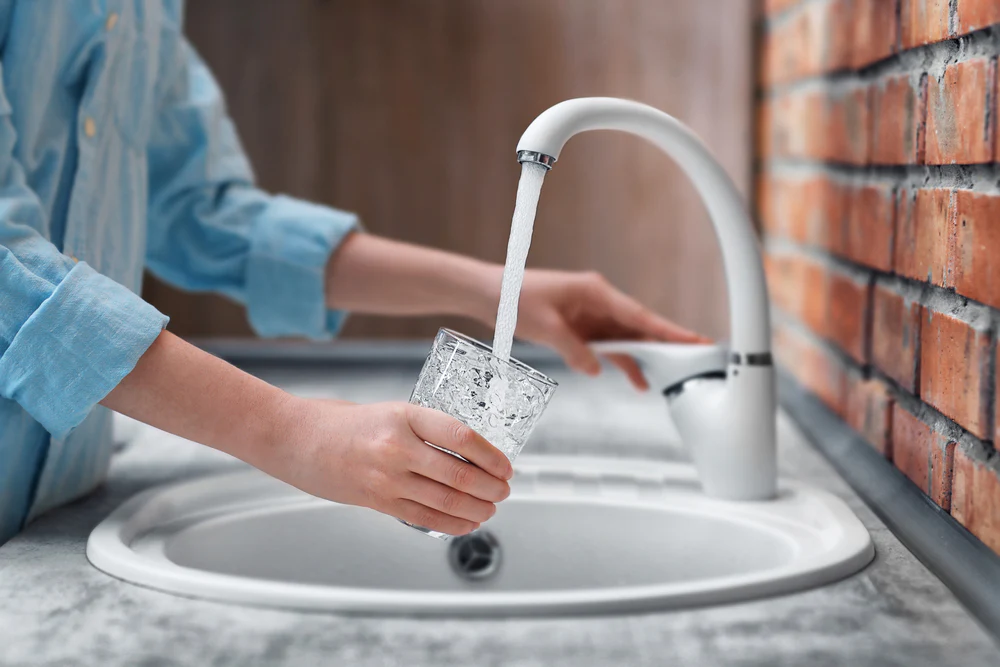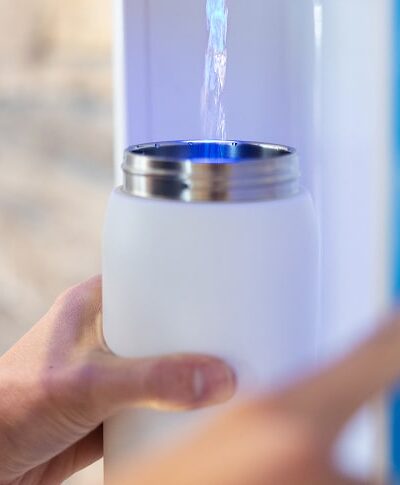New Jersey has been added to the growing number of states that have been called into question for its tap water. Back in January, Liberty Water Company sent out a warning advising Elizabeth, NJ city officials to stop taking water from Newark due to the concern over its water quality. This move led the country to wonder, is Newark, NJ tap water safe to drink? The answer is: it’s moving in a better direction.
In addition to the city’s continuing issues with elevated levels of lead found in the city’s water, there were also reports of disinfection byproducts. These chemicals, used during the water treatment process, have been linked to cancer. What’s causing this to happen? The previous lead levels found in Newark and other surrounding areas are the result of the corrosion of old lead pipes at the water treatment plant. This is a common issue for cities that rely on older systems without updating pipes to newer materials due to a lack of time and money. The exposure to elevated levels of lead poses a risk for public health, making this an issue that can’t be ignored.
At first, Elizabeth stopped using Newark’s water supply but eventually returned to the source. Like other communities in the area, it relies on the central water source but is limiting the use. The most recent development in New Jersey’s water quality issue came from officials in late September when they issued Newark water was safe to drink again if EPA-approved, city-issued filters were used.
The filters are reported to reduce the levels of lead below 10 parts per billion. (The EPA action level is 15 parts per billion.) Along with the filter testing, the EPA recommended Newark to distribute bottled water to residents due to the high lead problem. Although considered to be a temporary solution, the increase of bottled water leads to its own negative, long-term health effects.
Single-Use Plastic Bottles is Not The Safest Solution
In an effort to remedy a growing problem within the Newark water system, the government made bottled water available for residents. While this may have served as an alternative to drinking the city’s lead-laden water, it doesn’t provide a positive outcome to the problem or solve it long-term as a purified water supply would. In fact, it only adds to it.
Plastic waste continues to be a detriment to the environment and is not a sustainable option. Measuring by estimates, Newark has over 285,000 people. If the average person drinks 4 bottles of water (at 16.9 oz.) to meet the suggested daily intake of 64 oz., that means well over a million bottles of water are needed per day. Plastic bottles take around 450 years to naturally decompose. The cost and effect of relying on bottled water as the main water source is far too great to be considered a viable solution. However, it’s the chosen option for residents served by the Pequannock system who will continue to receive free bottled water until the lead service lines are replaced.
Additionally, using the free, FDA-approved faucet filters is also a temporary remedy as these will need to be regularly checked and replaced to be effective. It’s clear the state is doing what it deems necessary and is available to provide a clean water supply to its residents given their current resources. Ultimately, however, it will be damaging in other areas. Their filtered water solutions appear to be a short-term remedy with long-term repercussions.
Newark is Not Alone When it Comes to Tainted Water
While the news out of Newark is dismal, it’s not the first city to experience a polluted water crisis and it won’t be the last. Flint, Michigan and Washington, D.C. have already seen their fair share of water emergencies due to corroded pipes and contaminated water. Replacing old lead pipes seems to be the solution, but it is an expensive and extensive one. Old water pipe systems require careful planning on which areas to work on first, how the pipes will be updated, and what to do in the meantime to provide residents with tap water.
One of the main issues water treatment facilities have across the country is not knowing where the lead pipes are or how they’re connected. It was reported that all yards in Flint, MI had to be dug up in order to locate which pipes were there because of inadequate city records. Another factor to consider during this crisis is the water treatment processes themselves and the anti-corrosive chemicals that are often used, which also make their way into the water.
States continue to struggle to reach approved contaminant levels that fit within the water safety regulations. However, it leaves open the fact there is still lead and other chemicals found in tap water that people have previously presumed safe to drink. While officials are working to get closer to what is deemed acceptable levels, it still leaves plenty of people concerned with what they are drinking.
Are Filtered Water Systems The Answer?
Newark is taking control of fixing the root of its problem by replacing the lead water pipes. The city is also responding to the need for clean drinking water for its residents with the introduction of filters and the distribution of bottled water. All residents can do now is wait and see what happens.
Public water treatment systems across the country continue to face challenges keeping contaminants in check. Even then, it doesn’t mean tap water is contaminant-free; it simply meets the minimum standards of what’s required by the EPA. The ongoing troubles with tap water have led many to look for other options to get their daily water intake.
Bottled water has increased in sales over several years and continues to climb. This addresses the filtered water issue but adds to the environmental problem of plastic waste as well as the cost and energy it takes to produce bottled water. A more eco-friendly solution that can meet the needs of a large capacity is an electric water treatment system such as FloWater.
FloWater’s unsurpassed technology transforms tap water into purified water that’s free of contaminants and leaves behind a fresh-tasting flavor. For every person that decides to use one of FloWater’s Water Refill Stations, it reduces the amount of plastic waste. Its multi-filter system eliminates chemicals, bacteria, and other toxic materials from tap water to deliver a purified product. It also adds essential minerals and electrolytes often stripped away when using other water filtering methods like reverse osmosis.
It serves as a central source of purified drinking water for the public in airports, hotels, gyms, and other events and environments where it’s needed most. As organizations look for alternative ways to provide filtered water without the use of plastic bottles, this is a solution that meets their needs on all levels.
When people ask, is Newark, NJ tap water safe to drink, the answer is probably followed by several “if” statements and is possibly ever-changing. As New Jersey works through their water crisis, it’ll be interesting to see how it is remedied fully in the end and what kind of mark it leaves on the state.
The Ongoing Search For Clean Water Solutions
It’s essential for people to have access to clean water. Even if cities aren’t facing the level of crisis that Newark is in right now, the preference is filtered water over tap. There are various options for filtered water with factors to consider for each.
Bottled water has been the longtime go-to for drinking purified water, but with the increased pollution it is causing to the environment, people have started looking for alternatives. Alkaline water and reverse osmosis water are also choices that are gaining popularity. With the benefits come a few drawbacks with these options as well.
Alkaline water has an increased pH level to reduce the level of acidity in the original water source. It may prove helpful for those who suffer from acid reflux or other acid-caused side effects but hasn’t been shown to be beneficial in other health-related matters. Reverse osmosis captures all contaminants by applying pressure through a semipermeable membrane. However, it doesn’t leave behind any of the minerals or electrolytes commonly found in tap water that are good for the body.
The FloWater water filtration system aims to address all of these benefits and concerns and ultimately, gets rid of what’s bad and adds back in the good. Its advanced technology speaks to the best of what’s available through other water filtration options and brings them together in one place. Through its stations, it delivers 99% pure water on-demand, which allows people to fill up their water containers in less than 9 seconds. It’s fast, efficient, and requires little-to-no maintenance.
The FloWater Water Refill Stations provide a way to keep the masses well-hydrated with purified water without the need for plastic. Communities see the advantages of having these water systems available in places that align with their daily lifestyles. The stations are popping up in places of work, gyms, hotels, airports, schools, and events and festivals. The troubles surrounding tap water won’t die down anytime soon because there will always be pipes that need to be replaced and processes that require updates. When it comes to providing clean drinking water, there is one solution that works as a positive alternative in the meantime.
Sources:
https://www.cnn.com/2019/09/23/us/newark-water-filters-test-safe/index.html
https://newyork.cbslocal.com/2019/08/31/newark-bottled-water-wanaque-treatment-facility/
http://www.startribune.com/lead-pipes-that-tainted-newark-s-water-are-found-across-us/560245132/




